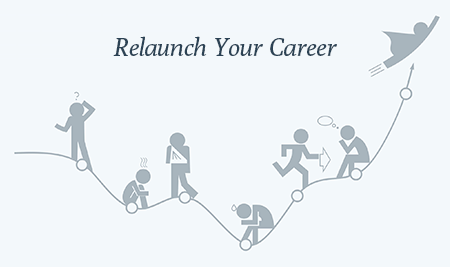You’ve likely read the numerous (helpful) career-switching advice articles with beginnings to the effect of, “You’ve been at your current job or had a job within the same industry for years and you are done with having your soul sucked out of you. You want a big change in your life, possibly an about-face. You want to work in digital marketing.”
Digital marketing has some variations in definition in regard to inclusivity, which likely indicates its evolving nature. You may know one without being acquainted with another.
For the purposes of this article let’s go with Smart Insights: Digital marketing is about utilizing digital technology (i.e. the Internet, SMS, IM, mobile apps, digital TV) to achieve marketing objectives.
Let me backtrack, though. Besides knowing the pros and perks of working in the rapidly growing and potentially lucrative digital marketing sector, be aware of what is involved. Note such questions are not negatives necessarily, more considerations.
Why digital marketing rather than, say, specializing in social media? What subcategory of digital marketing are you interested in and that your functional skill set qualifies you for? What digital marketing position are you aiming for?
Of course, you can educate yourself and/or obtain an official certificate from reputable resources such as Google.
While mentioning “interests” and “skills” people usually include “background”. I omitted “background” because you, as someone who wants to switch careers, might not have much to fill under that section of your resume at the moment. You can definitely acquire that experience—but I’d like to mention a few initial things to think about before you make that switch.
Required (and Desired) Skills
While you may have to acquire technical skills in such areas as Social Marketing, SEM, SEO, etc, there are a great many skills you likely already possess and can transfer from your present occupation.
To be a successful digital marketing professional, ask yourself as well as others if you’re …
- Passionate: You’ll want to genuinely love what you’re doing. Otherwise, you’re switching from one unhappy situation to another. Being comfortable with technology will alleviate a lot of basic frustration.
- Creative: You can contribute unique and appealing ideas to the marketing effort.
- Communicative: You express yourself clearly and keep in touch with coworkers and leaders.
- Analytical: You understand how to measure success (or failure) in numbers, statistics, and other types of results.
- Eager to learn: Digital marketing is a dynamic and fast-paced field. Trends are continually changing and adapting or gaining new skills to adapt are likely to be required.
- A multitasker: With so many digital media channels available needing continuous and engaging activity, you have to be on top of several platforms at once
- Open to trying out new approaches: If something doesn’t work, you don’t keep applying the same method of thought. Instead, brainstorm alternative and more effective ways to present the information.
There are a variety of roles in digital marketing, including
- E-commerce
- Affiliate marketing
- AdWords
- Content writing
- SEO
- Inbound management
- User experience
- Web design and development
- Social Media
If you aren’t quite familiar with these typical digital marketing terms, you should find out what they are and their context before you decide on which one you prefer.
Doing so sounds obvious, I know, as does the task itself, but you want to make sure you’re very clear on what you want to do and what’s needed for you to achieve it.
As for a few popular official capacities you can work in, see below.
General Position Profiles
- Head – the senior of the digital marketing domain
- Manager/Team Leader – having 2-4 years of experience enables the leader manages a team and helps to plan strategy
- Strategist and Analyst – a consultant who improves effectiveness of teams as a whole, frequently across multiple departments
- Specialist – having acquired 2+ years of experience in a specific area (i.e. SEO, paid search, SEO) the specialist can be considered an expert and work more independently
- Executive – entry level status usually working with a team to perform a number of tasks such as content development and research
Next, I’d like to talk about challenges that digital marketers face so you can decide for yourself if these are possible obstacles (or, in another sense, opportunities) you’d like to tackle. To see if you even want to stick your toe in this gigantic sea, you may want to return to the section of Desired Skills, which can be a check not only for the potential employer but also for yourself—are you the kind of person who thrives in the following conditions?
Challenges for Digital Marketers
- Competition is both intensifying and increasing. Relatively unfettered by the expense and mediums of traditional media marketing techniques, digital marketing is an element of nearly business of any size. If everyone can do it, it becomes harder for anyone in particular to stand out.
- The amount of consumer data available for analysis is already enormous and continually growing with dizzying speed. You need a general comprehensive grasp of the consumer market while also being able to target the data that is most relevant to your marketing goals.
- The ever-expanding nature of digital channels frequented by consumers in certain demographics on various devices with different interfaces and usage scenarios for a number of specific reasons means that you can’t sit still on what you know for any length of time.
All that being said, if you’re still with me, you want to know how to prepare yourself for a career in digital marketing. I’ve listed a few fundamental ways you can do this:
- Have a visible, active, and appropriate online presence: Demonstrate a creative mind, a distinctive personality, and a strong perspective on major social media platforms and/or blogs and websites. Your potential employer will search for you online and you want to make a good impression.
- Gain experience via formal education, certification, freelance work, helping a nonprofit, etc.
- Keep up-to-date with job sites, books, discussions, et centers, within the realm of digital marketing and related industries.
- Expand your networking connections. People already in the industry can very well open doors for you, or at least give you advice.
Switching to a career in digital marketing in not exactly a walk in the park. The industry is highly multi-faceted, that it could seem overwhelming at the start. The key here is taking things one step at a time. Pick one piece of the pie and focus on that for the time-being. From there, it’s easy enough to move onto other areas of digital marketing until you find the perfect niche where you can stand out and thrive.
About Guest Contributor Daniel Ross
 Daniel Ross is part of the marketing team at Roubler — a cloud based HR and payroll software platform founded in Australia. Their mission is to change the way the world manages its workforces.
Daniel Ross is part of the marketing team at Roubler — a cloud based HR and payroll software platform founded in Australia. Their mission is to change the way the world manages its workforces.




I am currently in the process of pursuing a digital marketing career while completing a masters degree in counseling. I have read hundreds of articles on making a career switch and I have to say this was the most honest, informative, motivating read. Thank you
I’m so happy to hear you enjoyed this post. Thanks so much for sharing your thoughts here, and I wish you the best in the pursuit of your digital marketing career!
Trying to switch careers from Banking and Finance to Marketing. I’m not even sure where to begin and this article guided me in the right direction and a lot of homework to do!
Thank you for putting my nerves to ease!
Zara, happy to hear you found this useful!
I´m happy to read your post. It´s valuable and informative. Currently, I´m struggling to switch my career from health care to digital marketing as digital marketer promotion to other company´s products and services. Thank you for sharing this useful!
Matea, I’m happy to hear you found this article useful. Making any career change can be complicated, especially during times like this in the midst of a pandemic, so my only advice to you is to remain persistent and patient with your change, and I hope you eventually get where you want to go.
Thank you for sharing this information
Of course. Glad you found it useful.
Thanks for your breakdown. Very comprehensive list of the skills and steps to break into digital marketing
Joseph, really happy to hear you found this useful.
Wow great article.